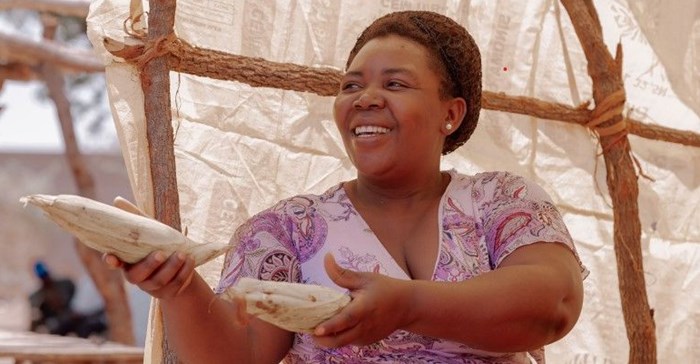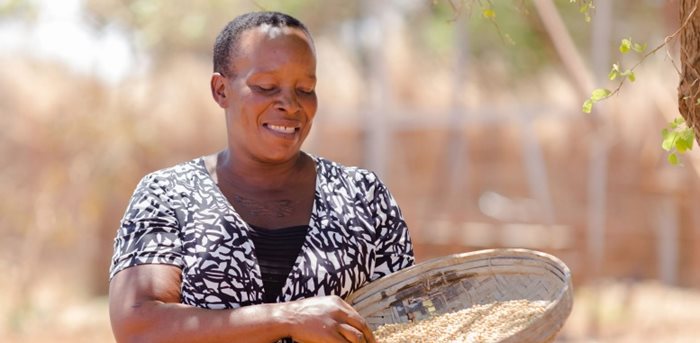Closing the gender gap in digital microinsurance among women smallholders in Africa

Women in Africa who rely on smallholdings for food security and for their livelihoods remain the most vulnerable to climate change, and they are the ones who typically have limited choice and knowledge of insurance services that can protect them against agricultural and climate-related risks.
At least 43% of smallholder farmers in Africa are estimated to be women.
Much is being done to address this.
"The agriculture sector, like any other business, faces a lot of risks such as loss and damage due to pests, diseases and the effects of climate change among others. Small-scale farmers are the hardest hit as they do not have the capacity and knowledge to overcome most of these calamities, which often occur naturally," says Sheila Okiro, Africa Digital Financial Inclusion Facility (Adfi) coordinator.
She was speaking at a webinar on identifying the gaps in financial inclusion on the continent. It highlighted the work Pula Advisors is doing to support women smallholder farmers to boost resilience and improve crop production in Kenya, Nigeria and Zambia.
Adfi, launched in mid-2019, bestowed Pula with a grant of $1m to this end.
A human-centred design (HCD) research exercise was carried out in Kenya, Nigeria and Zambia between October and November 2021. The idea was for the findings to inform the development and implementation of a gender-centric insurance product for these markets.
Pula worked in collaboration with the African Development Bank’s Gender, Women and Civil Society (AHGC) and Agriculture Finance and Rural Development (AHFR) departments that are providing technical expertise within the framework of the project.
"We needed to understand the needs of women farmers in order to see how we could support them from an agricultural perspective," Okiro said.
Digital financial inclusion
The research established that 322 million Africans have access to a mobile phone, but do not have an account with a bank or a money provider.
"One key learning was that women farmers in these regions had little to no access to information regarding insurance products and services and more women farmers were willing to part with approximately $6.36 to $12.72 for insurance a month. This equates to 100 to 200 Kwacha a month," said Francis Amani, innovation lead designer at Pula Advisors.
"The research found that education is key to building women's financial literacy, and an SMS framework, coupled with interactive voice response (IVR) technology, introduced women to microinsurance, more particularly the area yield index insurance program, its products and the benefits."
Area yield index insurance is based on directly measured yields in an area. The insurance pays policyholders if average yields in their area fall below a pre-determined strike point, indicating that a commonly shared climate-related catastrophe has destroyed crops.
Awareness-building and sensitisation
Pula and Adfi ran a test on a relevant sampled group of 2,880 farmers to better understand how farmers interacted with content shared through IVR.
"Based off of the research we conducted, we learned that there are breaking points regarding the retention of each farmer's attention within the IVR. We learned this breaking point was at around 45 seconds worth of content before there was a drop off of engagement with the services," said Amani.
"So what we've had to do is we looked at utilising 30 to 45 seconds worth of content for the IVR in order to then make sure that we captured key highlights within those 45 seconds in order for it to make the maximum amount of impact.
"We aimed to implement this with the 2,880 farmers where we provided 44 seconds worth of content regarding insurance information."
Okiro added: "Farmers are not used to paying premiums. So this does require some awareness building and some sensitisation but it has become so much easier with digital outreach."
"In the end, we got to reach out to 7,627 women farmers, with 100% of the content listened to by 87.84% of them."
Patricia Musopela, director of Zambia's community development and social services, said pushing awareness of agricultural insurance among women-led smallholders was one of the best ways to build income resilience and mitigate the impacts of climate change on food security.
She said the government's partnership with Pula is an important move in this direction, and that it would bring stability to female-headed households, and to households with seven members or more, and those with young children.
Leapfrogging access to finance
"As we all know, technology has played a role on the continent when it comes to leapfrogging access to finance for our most vulnerable communities, not the least of which are women in rural areas: the farmers, youth, and SMEs. This demographically indicated to us the importance of designing responsive solutions that can be quickly included into the financial ecosystem," said Atsuko Toda: director of the African Development Bank (AfDB).

"The idea was to undertake our research and then develop and design digital micro-insurance solutions that can support women in these three countries.
"Against the target of 360,000, Pula was actually able to reach over one million customers. And this really speaks to what AfDB desires to do in terms of reaching scale and the designing of solutions that can be distributed across other markets."
Its goal is to ensure that 332 million more Africans, of which 60% are women, have access to the formal economy by 2030.
Food security
"This is what we talk about when we talk about scale. We were able to pilot and scale quite quickly, particularly in the third market Zambia, and we're very proud of that," Toa said.
"Farmers' crops are impacted by climate change on the African continent. When the loss is extreme, then it really becomes extremely difficult for households and livelihoods. And we've seen in rural areas where the margins for their livelihoods are so thin, that insurance and the payout can really contribute to the resilience of the household income.
"Protecting themselves against loss and insurance is one powerful solution.
"I think this is going to be very exciting with regard to the role of digital insurance in food security in agriculture, and in providing climate-based resilience, given the rate at which climate change is happening around us.
"The sooner women smallholders can take up microinsurance, the better, especially in terms of scaling up nutrition, and preventing children from having their growth stunted and going to school hungry.
"With this kind of programme they'll be assured that even if they have drought or floods, they'll be covered."
.
Related
Goss’s Wilt and Leaf Blight: A new threat to South African maize production 19 Mar 2025 EIB reviews financing for $760m hydro project over DRC war 14 Mar 2025 AfDB, Standard Bank partner for R3.6bn SMME funding and trade growth 26 Feb 2025 African leaders approve creation of financial stability fund 19 Feb 2025 Italy and African Development Bank sign $420m co-financing deal 5 Dec 2024 Back to the future: Reviving sorghum in South Africa 4 Dec 2024

























